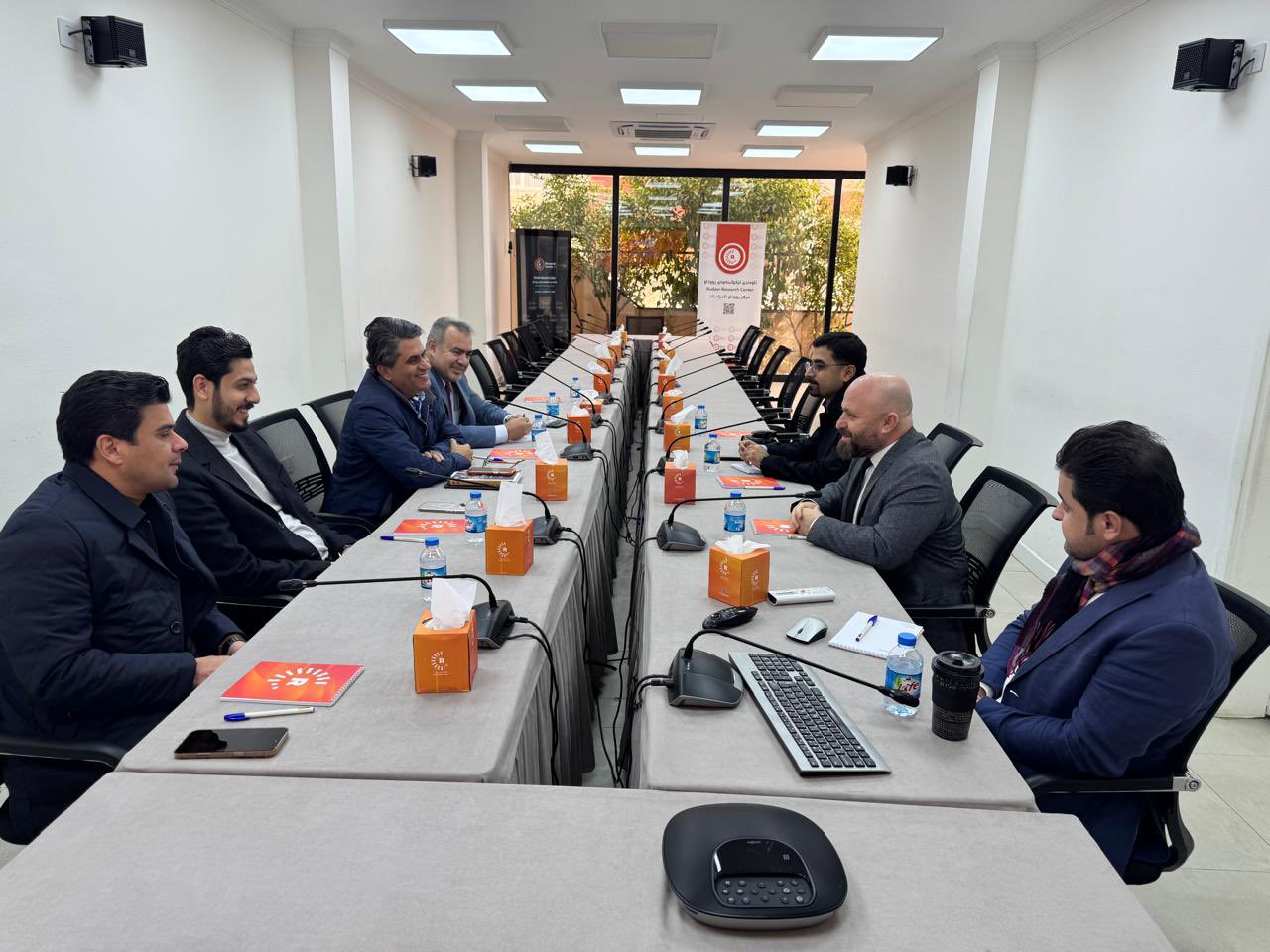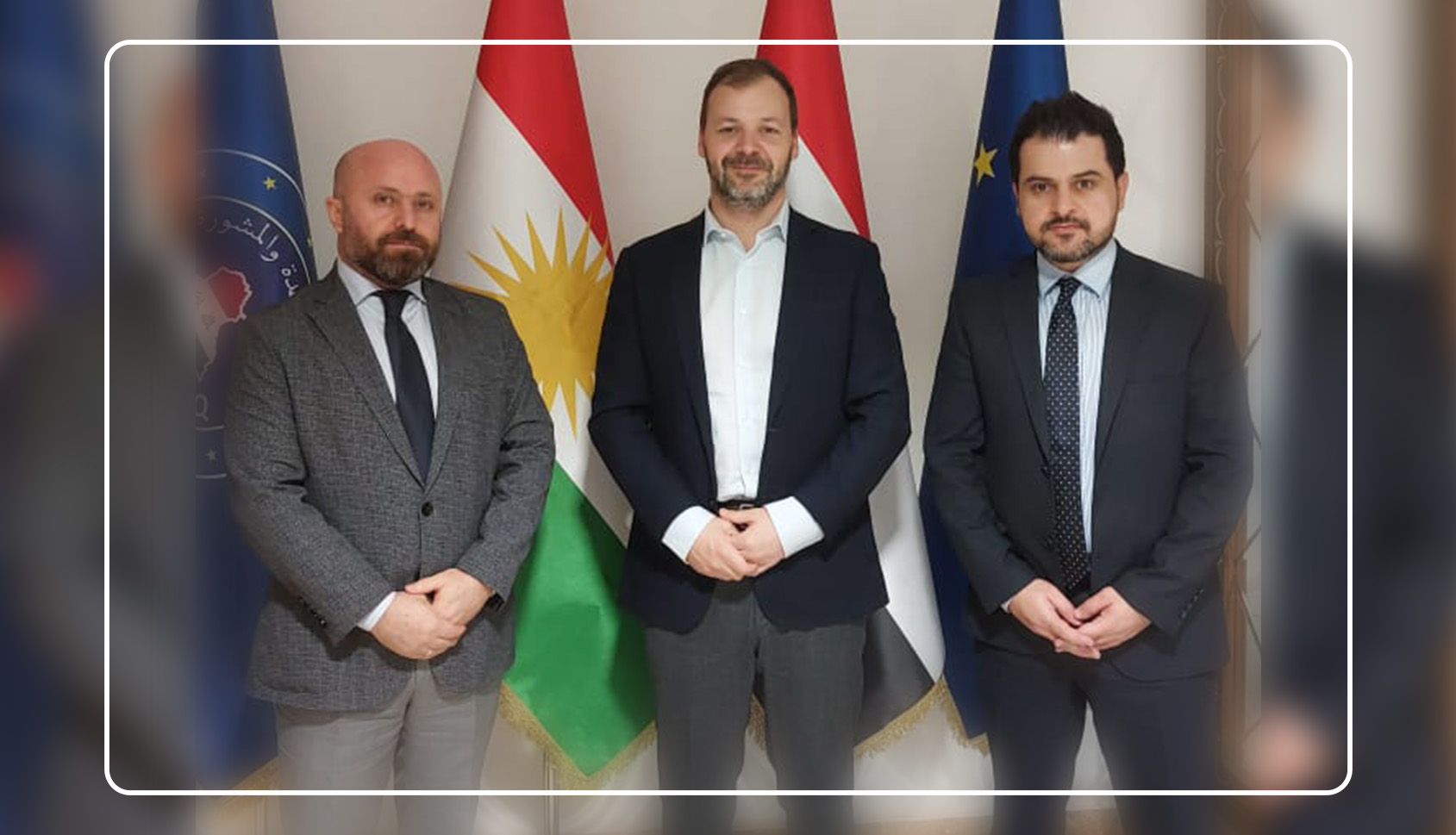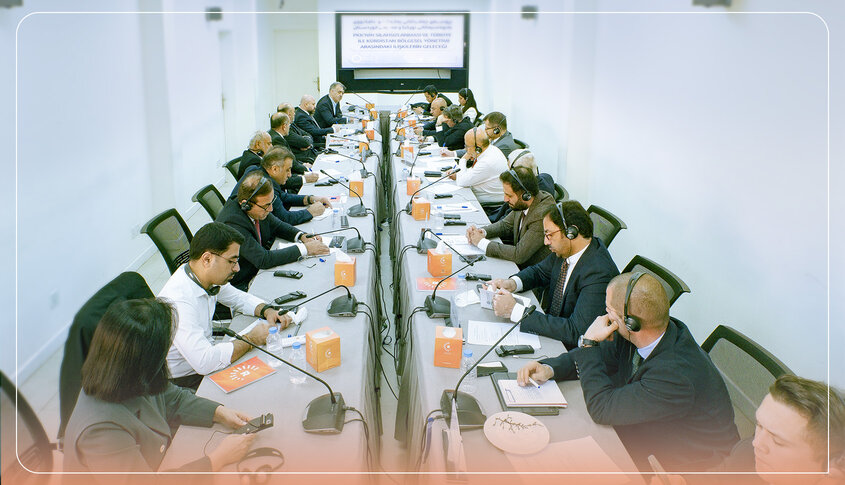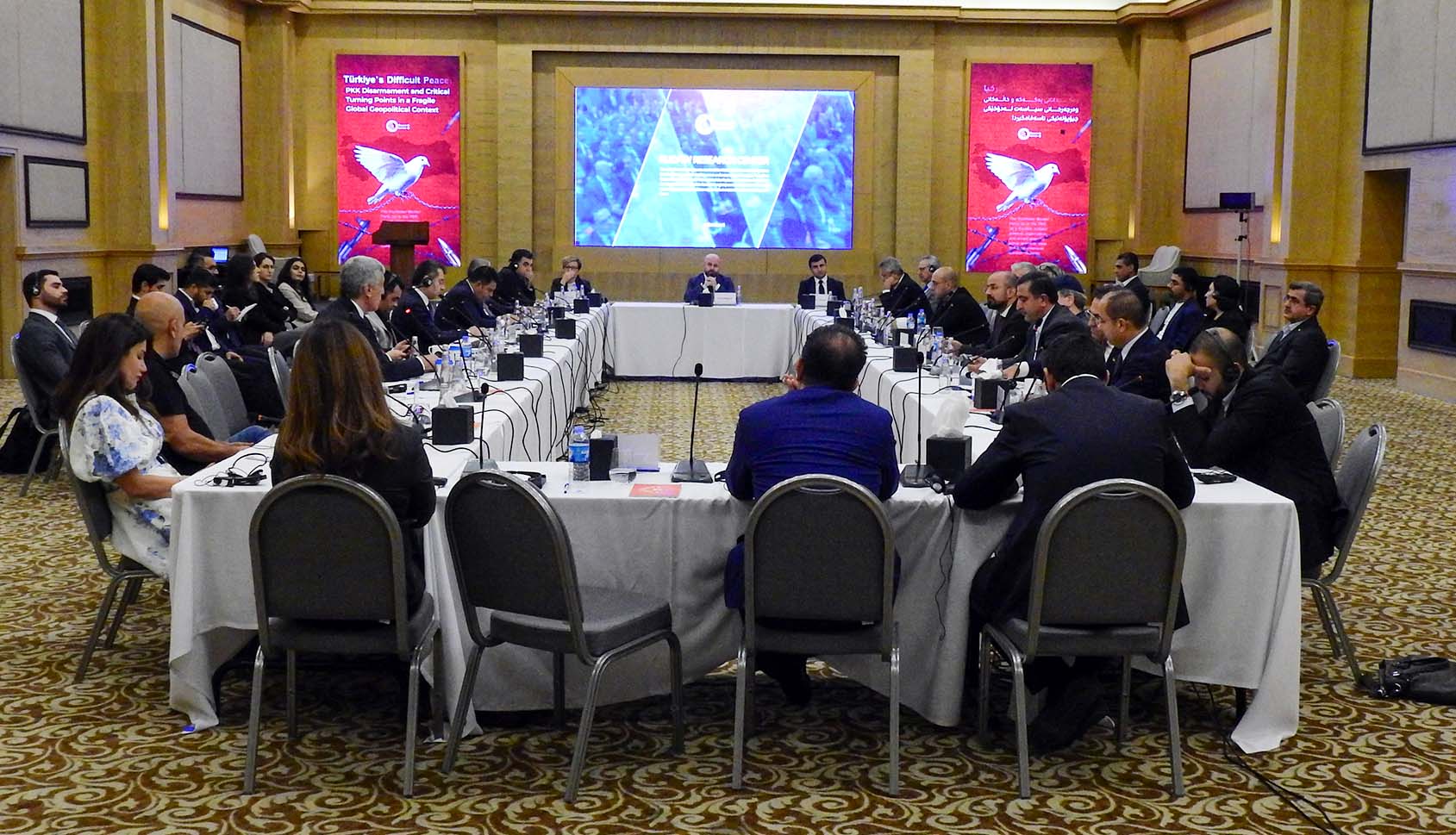| RRC |
“There can be no peace without justice, no justice without law and no meaningful law without a Court to decide what is just and lawful under any given circumstance.”
– Benjamin B. Ferencz, a former Nürnberg prosecutor
Most perpetrators of genocide, war crimes and crimes against humanity never stand trial for their crimes. Cases brought before national courts are often only known in the country or region where the trial occurred. In some cases the accused persons are prosecuted for international crimes which have been incorporated into domestic law. In other cases the accused are prosecuted for regular domestic offenses, such as murder, because the nation has failed to adequately incorporate international crimes into domestic law even when that nation has ratified the relevant international treaties.
The importance of domestic prosecution of international crimes cannot be underestimated. International tribunals are designed to judge only the most serious cases of international crime. In many instances it may be preferable for a competent national court to decide such a case. Domestic trials of genocide and other international offenses can play a crucial role in establishing a culture of legal justice in the aftermath of such massive crimes.
The perpetrators of genocide are not confined to states or agencies of government, but can also be non-state actors[1]. According to article 1 of the Genocide Convention, the international community has a responsibility to prevent and to punish genocide. Article 4 of the Genocide Convention states that “persons committing genocide or any of the other acts enumerated in Article 3 shall be punished, whether they are constitutionally responsible rulers, public officials or private individuals.”[2]
As someone who comes from a genocide victim community and seeking justice to the 146,679 unaccounted Tamils, I understand the pain and agony of the Yazidis over the past many centuries.
Under Ottoman rule in the 18th and 19th centuries alone, the Yazidis were subject to 72 genocidal massacres. The Yazidis had been denounced as infidels by Al-Qaida in Iraq, a predecessor of Isis, which sanctioned their indiscriminate killing[3].
Since 2014, the UN Office on Genocide Prevention and the Responsibility to Protect has been tracking the executions of Yazidi men and boys as well as the abductions of Yazidi, Christian and Shabak women and girls[4].
The targeting of women is not only to serve the sexual demands of fighters but also to carry out a calculated policy of ethnic miscegenation by impregnating female captives and thus sullying the ethnicity and culture of their enemies.
Discussions are now taking place in Europe, particularly in Britain, on the possibility of taking the case of Yazidi women to the International Criminal Court, though it was established by treaty in 1998 primarily to bring the masterminds of crimes to justice.
“The ongoing genocide against the Yazidis demonstrates there is a real gap between the strength of legal obligations to prevent, suppress and punish genocide, and compliance with them.”
The independent international Commission of Inquiry on the Syrian Arab Republic in its report states that, ISIS separated Yazidi men and boys over 12 from the rest of their families, and killed those who refused to convert, in order to destroy their identity as Yazidis. Women and children often witnessed these killings before being forcibly transferred to locations in Iraq, and thereafter to Syria, where the majority of captives remain.
Thousands of women and girls, some as young as nine, have been sold in slave markets, or souk sabaya, in the Syrian governorates of Raqqah, Aleppo, Homs, Hasakah and Dayr Az- Zawr. ISIS and its fighters hold them both in sexual slavery and in slavery, the report says, with Yazidi women and girls being constantly sold, gifted and willed between fighters. One woman, who estimated she had been sold 15 times, told the Commission, “It is hard to remember all those who bought me”[5].
The Commission further noted that, with no path to international criminal justice available, it is likely that the first such prosecution of ISIS crimes against the Yazidis will take place in a domestic jurisdiction. The Commission urged international recognition of the genocide, and stated that more must be done to assure the protection of this religious minority in the Middle East, and the funding of care, including psycho-social and financial support, for victims of this genocide.
ISIS sought – and continues to seek – to destroy the Yazidis in multiple ways, as envisaged by the 1948 Genocide Convention. “ISIS has sought to erase the Yazidis through killings; sexual slavery, enslavement, torture and inhuman and degrading treatment and forcible transfer causing serious bodily and mental harm; the infliction of conditions of life that bring about a slow death; the imposition of measures to prevent Yazidi children from being born, including forced conversion of adults, the separation of Yazidi men and women, and mental trauma; and the transfer of Yazidi children from their own families and placing them with ISIS fighters, thereby cutting them off from beliefs and practices of their own religious community”.
The intent of the Yazidi genocide is very clear. The crime of genocide has two separate mental elements, namely a ‘general intent’ or dolus, and an additional ‘intent to destroy’, also known as ‘special intent or dolus specialis. The general intent normally relates to all objective (actus reus) elements of the crime of genocide[6]. It is here that the International community knowing fully well that the main objective of the ISIS was to eliminate the entire Yazidi community for their religious beliefs, thus amounting to a genocide.
ISIS has also deliberately inflicted conditions of life calculated to destroy the group, as defined in Article 6 (c) of the Rome Statute[7]
In March 2016, the United States’ Secretary of State, John Kerry, stated that ISIS’s crimes against minorities in Iraq and Syria, including the Yazidis, Christians, and Shia Muslims can be categorized as genocide[8]. Despite the duty of the international community to stop genocide and the continuous commission of mass atrocities by ISIS, no form of accountability has been established yet in order to address the widespread mass abuses committed by this organization[9]
A transitional justice mechanism has to be implemented without any delay. All the four key elements including Truth-seeking Prosecutions, Reparations, Institutional reforms
Economic recovery will not be sufficient; people need to reconstruct communities, and re-establish social norms and values which were lost as the result of the 30 years of war.
This justifies the need for rehabilitation as a form of reparation clarified by the UN ‘Basic Principles and Guidelines on the Right to a Remedy and Reparations for Victims’ as taking five forms: restitution, compensation, rehabilitation, satisfaction and guarantees of non-repetition. This should necessarily include psychosocial rehabilitation at the individual, family and community levels.
Significant advances have taken place in recognizing universal human rights, in particular the right to health that is now enshrined in international human rights law, humanitarian law and criminal law.
As citizens of a number of European countries have been part of the ISIS or the ISIS has sold the captured Yazidi girls to European nationals, it’s extremely important to impose Universal Jurisdiction in this case and start prosecution of all those who were involved directly or indirectly in the act of genocide.
The Trials of German and Japanese war criminals following World War II were based on the principle of universal jurisdiction.
The sovereignty of States does not halt the duty of the international community to act when the crime of genocide is committed[10].The establishment of the International Criminal Court (ICC) made it possible to bring perpetrators of international crimes to justice[11].
The UN Human Rights Council adopted Resolution S/22-1 which requires Member State to coordinate in order to avoid impunity and ensuring full accountability[12]. The crimes committed by ISIS against the Yazidis, could also be referred to the ICC by the United Nations Security Council. Such a referral has already been done twice, namely for Sudan in 2005 and for Libya in 2011.[13].
The permanent members of the UN Security council may not approve of this measure and use their veto power to safeguard their geo-political and national interests in the background of the US soldiers taking part in the operations to eliminate the ISIS in Iraq.
The Office of the Prosecutor of the ICC has gathered information, which indicates that ISIS has several thousand foreign fighters. Significant numbers of these foreign fighters come from countries which are State Parties, including Tunisia, Jordan, France, the United Kingdom, Germany, Belgium, the Netherlands and Australia. According the Office a few of those individuals have even published their crimes on social media[14].
ISIS is primarily led by nationals of Iraq and Syria. Hence, localizing the prosecution will be important. The crime of genocide committed by ISIS against the Yazidis can be prosecuted by creating an ad hoc international criminal tribunal, like the International Criminal Tribunal for the Former Yugoslavia (ICTY) and the International Criminal Tribunal for Rwanda (ICTR). This kind of tribunal is set up for specific situations and usually has jurisdiction that has limited duration.
These two tribunals were established by the United Nations, since the international community did not have faith in the domestic judicial systems of the states where the crimes had been committed. Prosecuting ISIS before an ad hoc tribunal would be better than prosecution before the ICC, in the sense that an ad hoc tribunal can have broad jurisdiction, which is not limited to the core international crimes. Ad hoc tribunals have also heard more cases than the ICC. The ICTY has, for example, dealt with more than 120 cases, while the ICC has only heard 34 cases so far. An ad hoc tribunal for ISIS could also be situated in the region. In this way, there will be a good access to witnesses and documentation. This ad hoc tribunal could have jurisdiction over crimes committed by ISIS in both Syria and Iraq[15].
To conclude, like in all cases of Genocide, Transitional justice mechanism aims primarily to establish criminal accountability of perpetrators and to respect the rights of victims to reparation. The United Nations, transitional justice is the full range of processes and mechanisms associated with a society’s attempt to come to terms with a legacy of large-scale past abuses.
The Yazidi victims, of whom more than half a million are displaced or live as refugees are still waiting for accountability, justice and reconciliation, years after the end of genocide. Transitional justice processes and mechanisms are a critical component of the United Nations framework for strengthening the rule of law and the Yazidis should not accept anything less than that.
Genocide should be a thing of the past; our brethren whether in Western Sahara, Baluchistan, Kashmir, Kurdistan, Ambazonia or Tamil Eelam have a right to self determination, seek justice and live a life of dignity.
Dr. Paul Newman
[1] BeAnal v. Freeport-McMahon, Inc., 969 F. Supp. 361, 371 (E.D. La. 1997); but see Lee A. Steven, Genocide and the Duty To Extradite or Prosecute: Why the United States is in Breach of Its International Obligations, 39 VA. J. INT’L L. 425, 438-39 (1999).
[2] United Nations. (1948). Convention on the Prevention and Punishment of the Crime of Genocide
[3] https://www.theguardian.com/world/2014/aug/07/who-yazidi-isis-iraq-religion-ethnicity-mountains
[4] http://www.passblue.com/2017/08/01/building-a-case-for-prosecuting-the-gendered-genocide-of-yazidi-women/
[5] https://ohchr.org/EN/NewsEvents/Pages/DisplayNews.aspx?NewsID=20113
[6] Pearlman, A. (2016). Justice by Number: The International Law of Genocide and Its Implications. The Judges’ Journal, 55(3), 1-6
[7] International Criminal Court. (1998). Rome Statute of the International Criminal Court
[8] The guardian. (2016). John Kerry: Isis is committing genocide in Syria and Iraq. Retrieved from https://www.theguardian.com/world/2018/Aug/12/john-kerry-isis-genocide-syria-iraq
[9] Lattimer, M., Mojtahedi, S., & Anna Tucker, L. (2015). A Step towards Justice: Current accountability options for crimes under international law committed in Syria. London: Ceasefire Centre for Civilian Rights.
[10] United Nations. (2010). Prevention of Genocide. New York: Office of the Special Adviser on the Prevention of Genocide.
[11] Lekas, A. (2015). #ISIS: The Largest Threat to World Peace Trending Now. Emory International Law Review, 30(1), 313-316.
[12] Human Rights Council. (2014). S-22/1 The human rights situation in Iraq in the light of abuses committed by the so-called Islamic State in Iraq and the Levant and associated groups.
[13] Hora Siccama, D., & Ryngaert, C. M. J. (2016). Justice for Sexual Crimes Committed by IS : Exploring Accountability and Compliance Mechanisms. Utrecht: Utrecht University.
[14] International Criminal Court. (2015). ICC Weekly Update #239.
[15] Hora Siccama, D., & Ryngaert, C. M. J. (2016). Justice for Sexual Crimes Committed by IS : Exploring Accountability and Compliance Mechanisms. Utrecht: Utrecht University.





